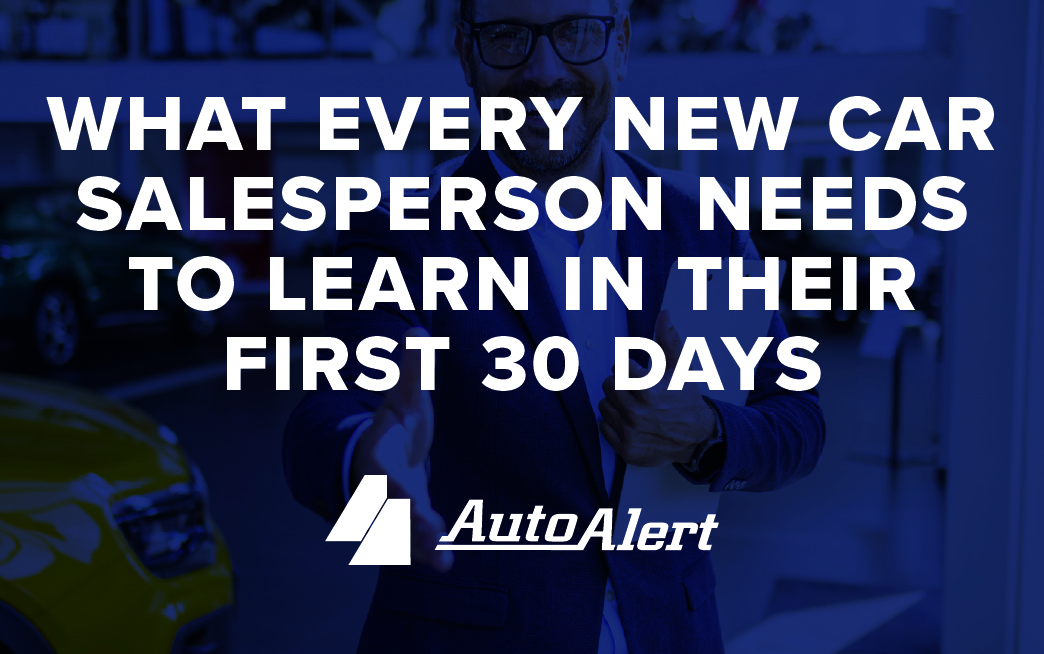Top Features to Look for in Car Dealership CRM Software
Dealerships today are looking for better ways to connect with their customers and provide consistent and excellent experiences. Successful engagement with today’s customers requires data collection and analysis. However, that information is only effective if the ability to access and deliver the personalized message derived from data is available.
When evaluating car dealership CRM software, it’s important to consider features that can enhance customer relationships, streamline operations, and boost sales. Here are the top features to look for:
Lead Management
Lead management allows a dealership to determine the best customers to follow up with based on multiple factors. It improves the efficiency and productivity of your sales team by helping them focus on the right leads at the right time.
A good dealership CRM system excels at lead management by incorporating several key features and functionalities that streamline the process, enhance efficiency, and drive sales. Characteristics for a robust automotive CRM for lead management would include the ability to:


Automatically capture leads from various sources (OEM, your website, social media, emails, etc.)


Track leads through the entire sales funnel, from initial contact to final sale


Prioritize leads based on their likelihood to convert


Organize leads and customer information in an easily accessible manner


Automate email and SMS follow-ups to ensure timely communication with leads
Detailed Customer Profiles
Inclusive CRM software can deliver automated services to personalize client communications and manage individual customer relationships. Customer profiles that include contact information, purchase history, and preferences collected through calls, emails, and in-person visits can be logged and maintained with a user-friendly CRM.
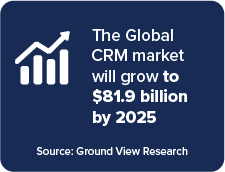

CRM data driven by the customers’ activities and behaviors gives dealers the complete picture of their customers with real-time data from consumer research and buying behavior.
Robust data and the power of AI that predicts consumer behavior give dealers the tools to manage the entire customer experience: from the initial internet or showroom lead to signing the paperwork, follow-up through interactions in service, recall management, or new upgrade opportunities. The role of CRM is to connect the dots to a clear path of action and provide specific direction for each customer, giving accountability to dealership teams.
Sales Management
Sales performance management allows managers to see how sales teams perform and where improvements can be made from the platform. By identifying problem areas with data, they can be more efficiently addressed.
High-functioning CRMs provide complete visibility into your sales funnel, allowing you to instantly see what stage of the cycle a customer is currently at. You can leverage this information to plan your next move, identify weak spots, forecast revenue, and analyze sales reps’ performance.
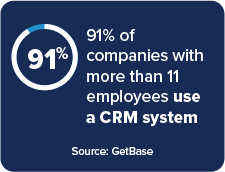

A modern CRM combines analytics tools with data collection software to segment customers and send personalized messages based on their customer data and behavior. Lead scoring identifies the customers most likely to convert and helps streamline sales and marketing efforts, improve efficiency, and optimize the sales process.
Customer Communication
When shopping for a CRM, look for omni-channel communication. This allows you to communicate with leads through multiple channels, including CRM and pre-built customizable email and SMS templates, ensuring consistent and personalized communication.
Integrations enable quick communication with customers through emails and text messages and allow them to engage with them in real time through live chat and social media platforms.
Virtual communication assistants powered by AI contact customers and notify the dealer when a customer requests more information or provides an interested response.
Mobile CRM
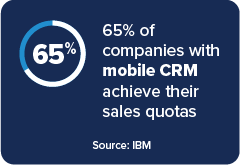

Smartphone technology is a staple these days, so it only makes sense to utilize it to benefit your business. With the ability to access your CRM remotely, staff can view data and receive valuable alerts about campaigns while on the go.
This wouldn’t be nearly as convenient if your CRM mobile app doesn’t match the functionality of the desktop. The design must be responsive and enhance the user experience, allowing sales representatives full access to update lead information and communicate with customers effectively.
Reporting and Analytics
A CRM can help predict future sales trends and lead behavior using robust historical data.
Sales analytics is one of CRMs’ most valuable features. A smart automotive CRM helps you collect and analyze data from social media, polls, and website traffic. Users can learn from their sales campaigns and improve them for future campaigns.
Get insights into customer behavior and preferences, identify trends, and measure the effectiveness of marketing campaigns. Generate detailed reports on sales performance, lead conversion, and customer interactions.
Integration Capabilities
If your dealership uses software other than a CRM, you’ll want to be able to integrate them – adding functionality and a streamlined operation.
A CRM with fully redundant architecture and an open API, allowing dealers to integrate other providers into the platform, means that dealers can have all their customer’s information on one screen and in one tool.
Integrations allow for automating your sales process, freeing your employees to focus on more complex tasks.
Task and Workflow Automation
Speaking of tasks, task management and workflow automation are other features of a comprehensive CRM. These capabilities let you break down and prioritize large tasks into smaller, more manageable ones.
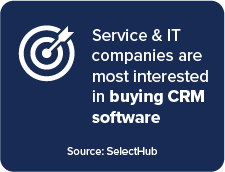

You can assign tasks for team members and then track and monitor those tasks to help uphold deadlines and goals while improving teamwork. Schedule and automate timely follow-up emails and calls to keep leads engaged and your team on track.
A dealership CRM that can optimize workflows by automating processes like data collection, data analysis, marketing campaigns, and other previously manual tasks can save time and reduce errors.
User-Friendly Interface
Ease of use is never overrated. If a platform is intuitive and easy to navigate for all users, they will be more likely to use it and feel more positive about it.
Flexible and customizable dashboards and reports can be made to fit your dealership’s specific needs and tailored to display relevant metrics and information. A user-friendly interface can also minimize the learning curve for sales representatives and help them gain the system’s benefits faster.
Reports presented in pleasing and easy-to-read dashboards allow users to view statistics more engagingly. They are made even more useful with real-time data updates that can be used to make data-driven decisions.
Training and Onboarding
Comprehensive training and onboarding support make a huge difference in CRM satisfaction. Adopting a new CRM is a big undertaking and a big expense. Excellent training when learning the new platform and the comfort of knowing there is ongoing support can make or break a CRM’s success.
A good training program should help staff learn to track overall progress, set and reach sales goals, and evolve objectives. Training resources, including tutorials, webinars, and customer support to help users maximize the CRM’s potential and ongoing technical support to resolve any issues promptly, should be offered for staff to maximize CRM utilization.
Storage, Security & Compliance
When you are dealing with robust data, it must be stored appropriately. An essential CRM function is the ability to access data efficiently. Safeguards to protect and back up essential data are vital to prevent losses and security breaches.
You can’t safely and confidently work within a CRM without the security of knowing your data and customer information is safe. Your CRM platform should adhere to industry standards and regulations. Look for a CRM with built-in features to help manage compliance and data privacy laws like SOC2 Type II and ISO 27001.
Managing confidential information in a secure environment is incredibly important so that your customers feel safe with their information in your hands. This is essential to avoid cybersecurity issues and data leaks. The last thing your dealership needs is a customer’s identity theft due to a data security breach.
A well-developed car dealership CRM can lead a dealership to increased efficiency and profitability. By focusing on these features, car dealerships can choose a CRM system that significantly enhances customer interactions, boost sales, and streamline overall dealership operations.
Building excellent experiences from the ground up involves meeting customers where they are most comfortable and delivering a personalized message based on thorough data analysis.
This customer-centric approach is how AutoAlert built our CRM so dealers make the customer the heart of every touchpoint.
AutoAlert CXM is an all-in-one car dealership CRM solution. It provides real-time data to give dealership teams the complete picture of their customers while providing specific direction for each customer and accountability for dealership teams.
“We’ve noticed our sales have increased because of the automation from AutoAlert CXM. The best part about AutoAlert CXM is the complete cycle. Work efficiency is up about 100%. We can do more and track more than we ever did before in less than 30% of the time.”
Clyde Monisse, General Sales Manager at Direct Nissan.
Stats sourced from ERP/CRM Solution Seeker; “What’s the Buzz in CRM Trends for 2024?” Link

